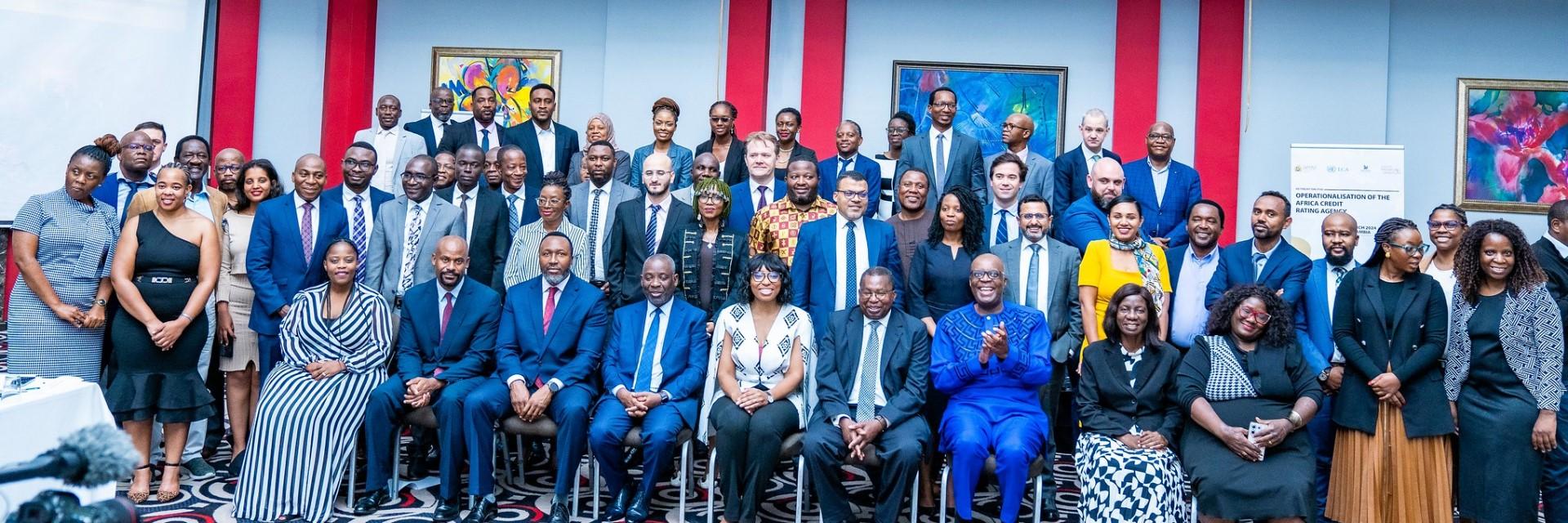Addis Ababa, 15 April 2024 (ECA) - The United Nations Economic Commission for Africa (ECA) and the African Peer Review Mechanism (APRM) convened key stakeholders on credit ratings in Lusaka, Zambia from 26-28 March. The event brought together over a hundred participants from finance ministries and central banks, regulators, the private sector, civil society and financial institutions, including banks and insurance companies.
Mr. Danies Chisenda, Permanent Secretary - Economic Management and Finance, on behalf of the Minister of Finance and National Planning of Zambia, Situmbeko Musokotwane, reiterated the country’s commitment to be part of regional and continental initiatives, including securing greater market access to support national and continental development aspirations.
Ms. Hanan Morsy, Deputy Executive Secretary and Chief Economist, ECA, explained that managing and improving credit ratings is a complex process that involves several strategic measures, both individual and collective.
“At the national level, it is important to improve macroeconomic governance to strengthen the fundamentals, she said, and stressed the need “to improve data quality, availability and transparency, as well as information sharing and coordination between government entities.” In this respect, she mentioned the work carried out by the ECA in the field of credit ratings, including research in collaboration with the APRM and technical assistance to countries that have never been rated, and the development of e-learning programs.
Mr. Albert Muchanga, AUC Commissioner for Economic Development, Trade, Tourism, Industry and Minerals underlined the growing importance of domestic resource mobilization in Africa's inclusive growth and sustainable development, notably through the development of African capital markets. He also reiterated the importance of timely and reliable statistics to avoid unfair risk premiums and inaccurate assessments of African economies, as well as the importance of building technical capacity in credit rating.
For his part, Eddy Maloka, Director General of the Continental Secretariat of the African Peer Review Mechanism, stressed the importance of developing the domestic rating agency industry, which represents a unique opportunity to provide alternative credit ratings and tap into the market of the 22 African countries that have no credit ratings.
The two-day retreat featured panel discussions with eminent speakers on topics ranging from legal and regulatory framework to the role of an African rating agency in a changing global financial architecture. The African Sovereign Ratings Review 2023/24, a joint bi-annual report by the APRM and ECA highlighted the fact that downgrades and negative outlooks dominated the rating actions of the three major agencies, with no African country issuing a sovereign bond in the second half of 2023 due to high costs.
The report analyses the long-term foreign currency sovereign credit rating actions in Africa by the three dominant international credit rating agencies (CRAs) –Moody’s Investors Service, Fitch Ratings and S&P Global (S&P) Ratings – during the second half of 2023 (2023H2) and makes recommendations to both CRAs and African governments on how credit ratings can be improved.
The retreat was preceded by the third meeting of the African Network of National Rating Agency Regulators, held on March 26. The Network brings together African national regulators to explore ways of improving national and cross-border regulation of the credit rating industry. It serves as a central platform to facilitate collaboration and experience sharing.
Issued by:
Communications Section
Economic Commission for Africa
PO Box 3001
Addis Ababa
Ethiopia
Tel: +251 11 551 5826
E-mail: eca-info@un.org

